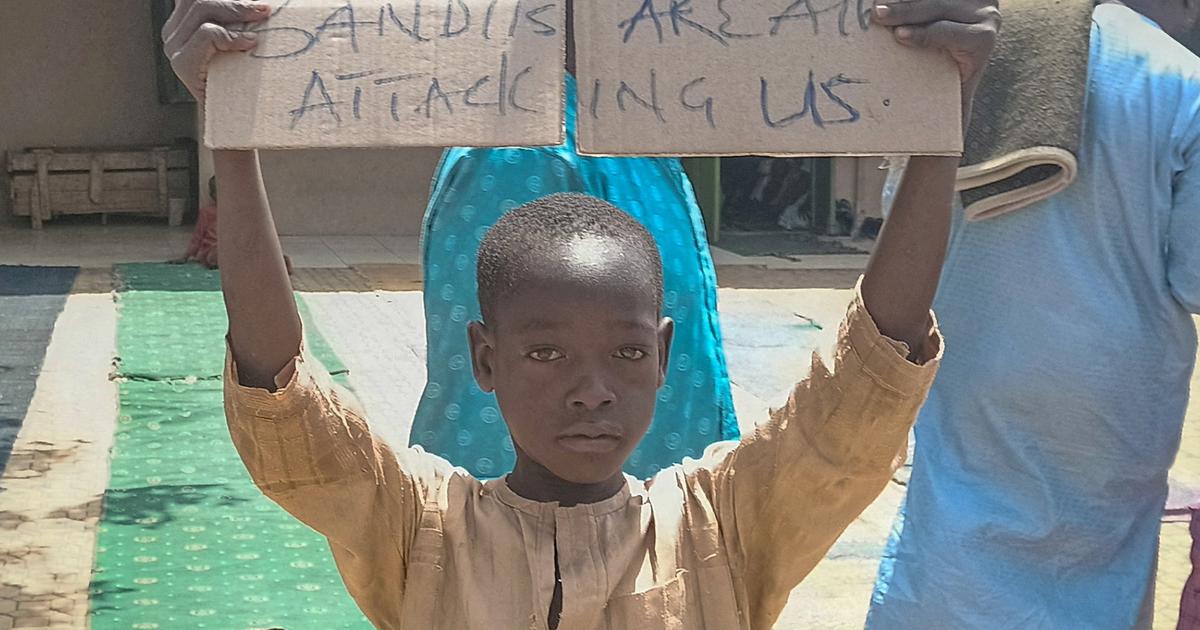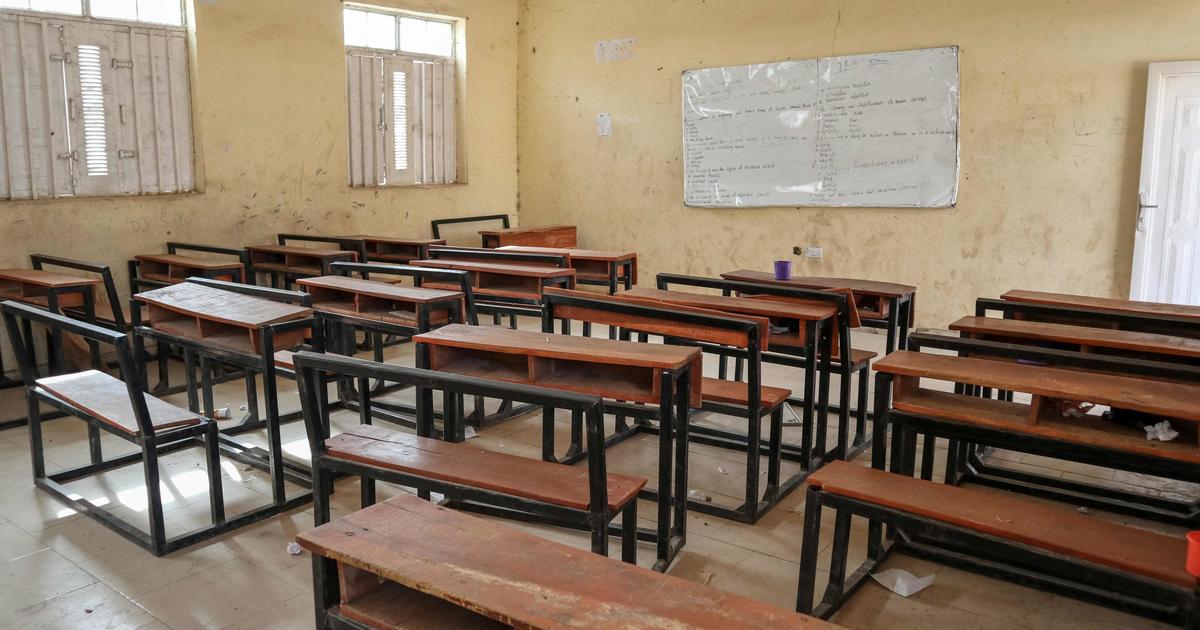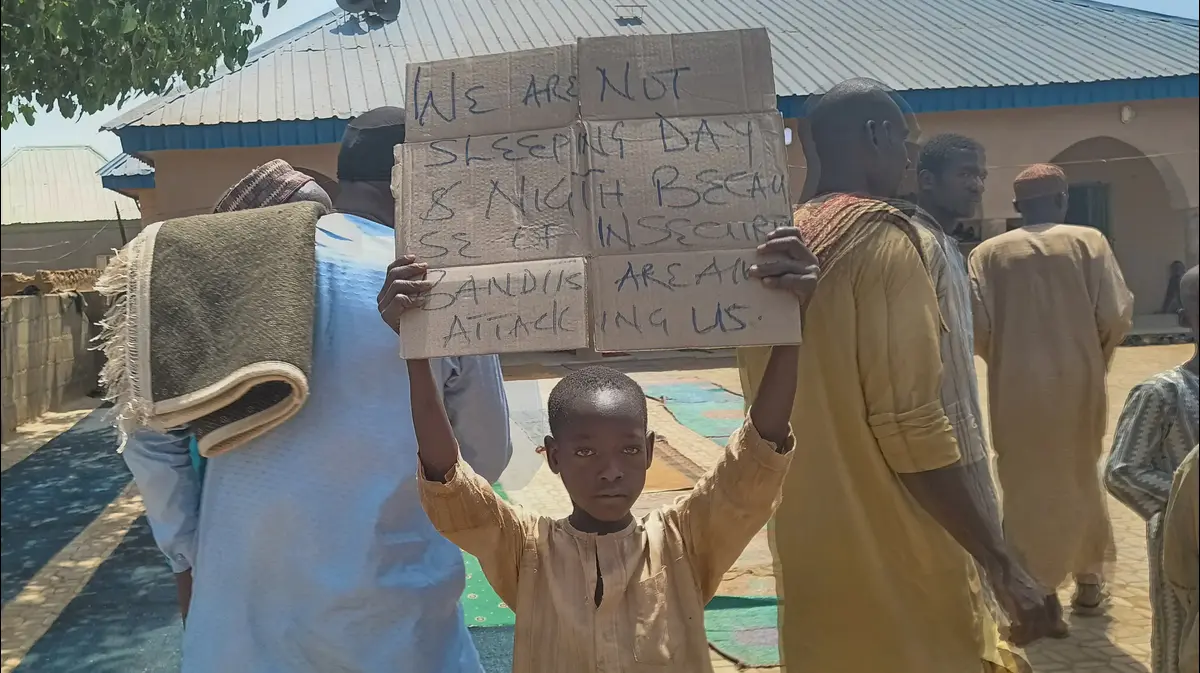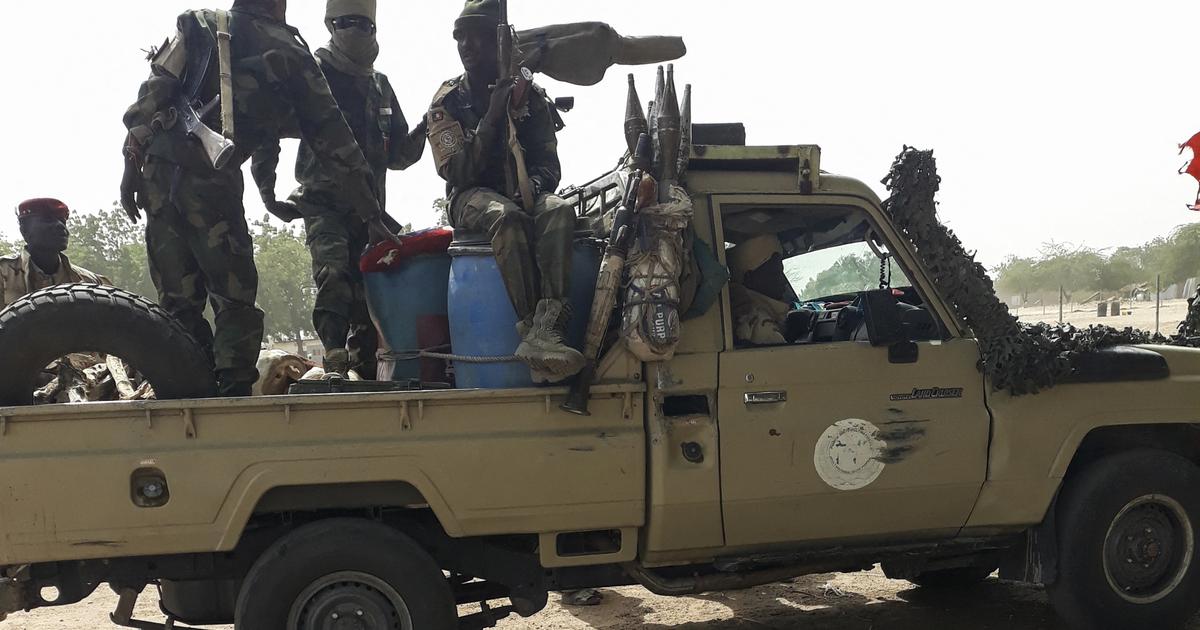His voice rang out in an audio message: “I am Abubakar Shekau and our brothers are behind the kidnapping in Katsina.
With these words, the bloodthirsty leader of the jihadist group Boko Haram claimed Tuesday the kidnapping of several hundred high school students in northwestern Nigeria, which occurred on Friday evening.
Parents, devastated, could not fear a worse scenario.
Six years earlier, the same Shekau, who considers every student to be a "disbeliever" to whom he promises death, had ordered the kidnapping of Chibok, triggering a wave of global indignation.
“Bring back our girls” (“Rendez-nous nos filles” in French), then cried out personalities from all over the world.
Of the 276 teenage girls kidnapped in the middle of the night in their boarding school, 112 have never been found.
The attack in Katsina on Friday marks a new impetus for the jihadist group, which seemed weakened for nearly five years.
New violence at the end of November
By pledging allegiance to the Islamic State terrorist organization in 2015, Boko Haram, already weakened by the offensive of the armies in the region, had to abandon its attacks against civilians, mostly Muslims, acts deemed too extremist by Daesh.
In 2016, ISIS put Shekau aside and appointed a new leader to head Boko Haram.
The group then split into two factions: that of Abubakar Shekau, the historic leader, and the Islamic State in West Africa (Iswap), affiliated with ISIS.
Since then, "we did not really know what threat represented the Shekau group", details Wassim Nasr, journalist at France 24 and specialist in jihadist movements.
"There were assassinations between the two groups, but no conflict for a territory", continues the author of the book "Islamic State, the accomplished fact" (Ed. Plon - 2016).
But since the end of November, Boko Haram is again talking about him.
On the 28th, the organization launched an attack in Maiduguri, in northeastern Nigeria.
At least 76 farmers are murdered by dozens of gunmen who tied them up before slitting their throats.
On December 12, in south-eastern Niger, at least 28 people were killed, most of them burned to death.
Finally, on the night of December 11 to 12, around 100 armed men, riding motorcycles, attacked the rural public school in Kankara and kidnapped more than 300 adolescents.
A "very dangerous" extension
The kidnapping of high school students represents a turning point in the anchoring of Boko Haram in Nigeria.
This is the first time that the jihadists have struck in this region, located hundreds of kilometers west of their stronghold, on the edges of Lake Chad.
"Given the tensions around this area between the Shekau faction and that of the Islamic State, one can imagine that the head of Boko Haram is seeking to expand westward and appropriate new areas of activity. “, Advances Wassim Nasr.
Morning essentials newsletter
A tour of the news to start the day
Subscribe to the newsletterAll newsletters
To expand, Abubakar Shekau has forged links with armed groups in northwestern Nigeria, which terrorize populations, steal their livestock and loot their villages.
In particular, he broadcast videos showing hundreds of bandits pledging allegiance to him in different states.
The extension of the jihadist group's influence along the border with Niger is "very dangerous", observes the journalist from France 24. "We are approaching a junction between Lake Chad and the Sahel", a area where French forces, Al-Qaeda and terrorist groups linked to Daesh are present.
“Moreover, the branch of IS in the Sahel is subordinate, in the organization chart of the group, to that of Lake Chad,” he notes.
All this would risk creating a call for air, with an extensive exchange of skills and resources between the different jihadist factions.
"
In January, Emmanuel Macron announced the sending of 220 additional soldiers to the Sahel to support the French military force Barkhane which fights jihadists in the Sahel region.
The objective "was precisely to hinder in the short term the rise of ISIS in the Sahel and in the long term to avoid a possible junction which would create a jihadist theater going from Somalia to Mauritania", explains Wassim Nasr.
Enough means to hide so many hostages
The scale of the Kankara attack is also unprecedented.
Nigerian authorities say 333 teenagers are still missing, but many local sources claim that more than 500 are in fact untraceable.
"They have the means to keep, or to subcontract the detention, of several hundred high school students, to hide them, to transport them, to feed them, without being arrested ... It's huge", points out the specialist in movements. jihadists.
With this kidnapping, Boko Haram strengthens its propaganda.
The very megalomaniac Shekau returns on the international scene, "which allows him to exist, to make his group subsist, to obtain more resources and to recruit", develops Wassim Nasr.
After the kidnapping of 2014, Boko Haram had in this way recovered significant financial resources and released several of its imprisoned fighters while negotiating with the government.
A political coup
This new operation is also a political coup, as it weakens President Muhammadu Buhari.
In 2015, the Nigerian head of state was elected by promising to end the jihadist insurgency.
He had then particularly attacked the record of his predecessor, Goodluck Jonathan, pointing in particular to his inability to prevent the kidnapping of hundreds of teenage girls.
Already contested by part of the youth, who blames him for bad governance, Buhari is therefore just as powerless in the face of the spread of violence.
The war against Boko Haram has been raging for ten years and has claimed 36,000 lives, mainly in the northeast of the country.
More than two million people still cannot return to their homes.
On the evening of the kidnapping, the president was less than 200 km to the north, in the same state of Katsina.
He arrived in his native village to take advantage of his holidays.
Buhari condemned the attack and ordered increased security in all schools.
Schools have also been closed in the province.















